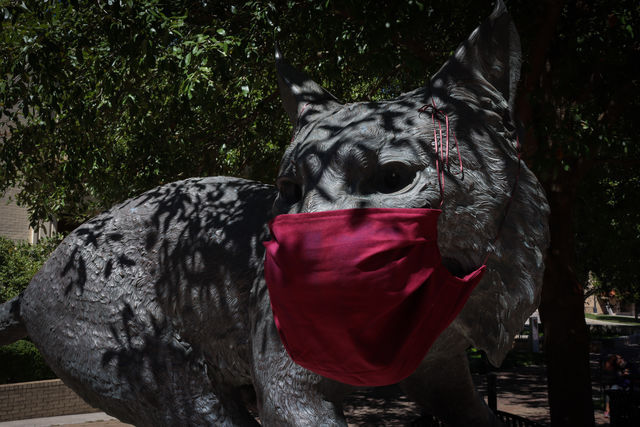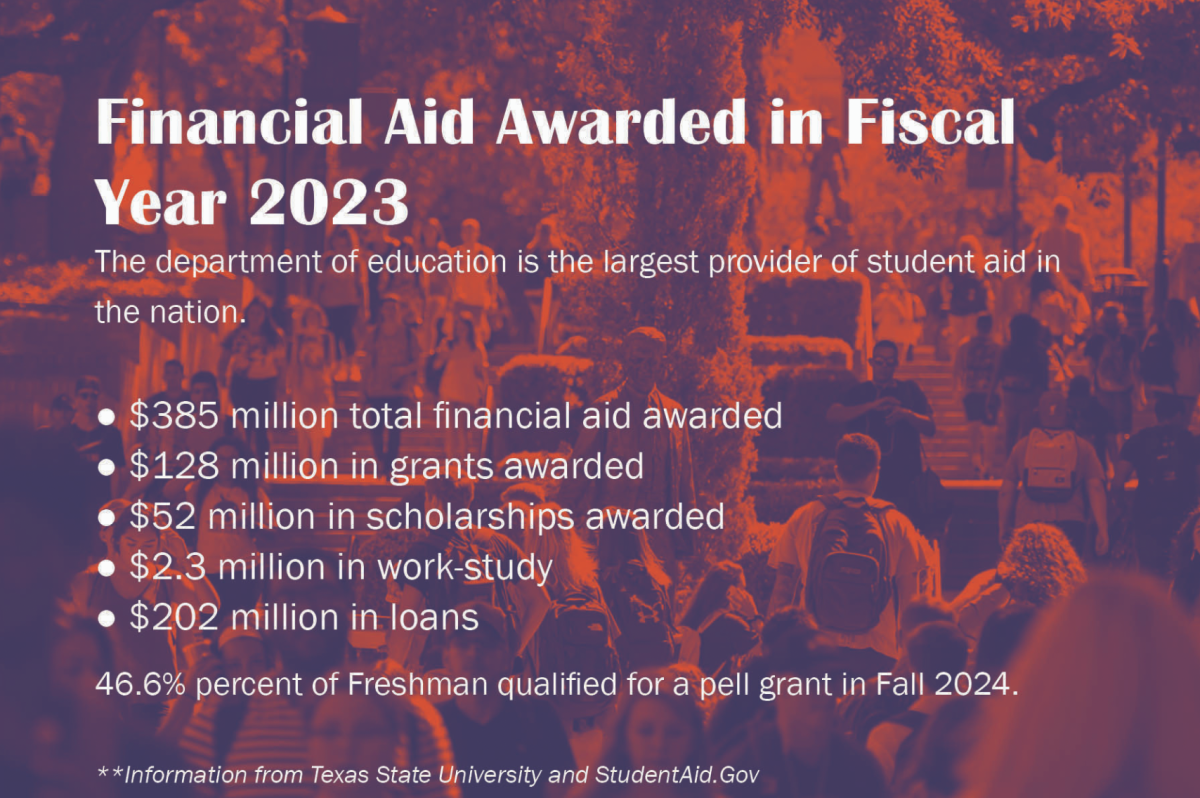Texas State reported a significant increase in student withdrawals and a drop in international student enrollment due to COVID-19 complications.
According to Gary Ray, associate vice president for enrollment management and marketing, a total of 529 students cited COVID-19 as a reason for their withdrawal from the university, 30% of the year’s total. A withdrawal is defined as a cancellation of all registered classes.
In total, 1,773 students withdrew from the university—a 13.5% increase from the 2019 total of 1,561 withdrawals. COVID-19 is the most commonly cited reason for withdrawal, followed by 368 citing a transfer to another institution and 275 citing financial difficulties.
Ray says the inclusion of the broader COVID-19 category may have affected other statistics. For example, the university saw a decrease in students citing financial difficulties, family problems, employment conflicts and medical problems as reasons for withdrawal since 2019, all categories that could be directly or indirectly affected by COVID-19.
“The pandemic had the most disproportionate impact on high-needs families and low-income families who maybe had experienced displacement or employment issues,” Ray said. “They had a larger no-show withdrawal rate, particularly as they got farther away from campus.”
Texas State also saw a decrease in international student enrollment due to travel restrictions and embassy visa appointment troubles caused by the pandemic. Rosario Davis, associate director of International Affairs, said 56 fewer international students enrolled in the fall semester for these reasons.
“We heard from our students [that] many [intended] to come and simply could not because embassies were closed and visa appointments were not able to be made. You have to have a visa to come in,” Davis said. “That was a huge impact… Back in April, March, when COVID was hitting us, embassies around the world reduced staff, reduced hours and finally began closing.”
According to International Student and Scholar Services, 17 continuing and eight new international students are attending Texas State fully remote from their respective countries. These 12 graduate and 13 undergraduate remote students are attending classes from the following countries: Thailand, Brazil, Egypt, Mexico, Belize, Canada, China, Kuwait, Russia, Rwanda, Saudi Arabia, India, Malaysia, Mauritius and Nigeria.
In response to the pandemic, the university employed various programs to financially assist current and incoming students during the 2020 spring and summer semesters, including raising the maximum family adjusted gross income requirement for access to the tuition-free Bobcat Promise program from $35,000 to $50,000 and distributing $15.8 million in emergency Bobcat Cares grants to 1,762 students.
Ray says Texas State aimed to assist students in continuing their college careers by mitigating as much of their financial concerns as possible.
“One of our main concerns was the impact of the pandemic on families, particularly as it relates to a student’s ability to work during the shutdown,” Ray said. “It creates additional financial stress, and then the uncertainty of the lockdown as it relates to deciding to go back to school or not, [deciding] to get a lease or not.”
In addition to financial support, the university partnered with ReUp Education, a college student retention organization to combat enrollment drops and withdrawals. Since partnering with Texas State in June 2020, ReUp claims it has reached out to 15,796 students who stopped attending the university over several years, engaged in active support with 1,461 and assisted 71 with re-enrollment. The organization says over 100 more students are currently considering enrolling in spring 2021.
Mira Fontana, director of partner success for ReUp, says methods for re-engaging students with the university are individualized based on several factors, including withdrawal recency, interests in education and financial situations.
“ReUp supports each student in a very individual manner through our communication channels, whether it’s through automated resources and tools that we provide to certain groups of students based on their interest in needs, or, when the time calls for it, we employ highly-individualized success coaching,” Fontana said.
An additional enrollment census will be taken Oct. 20 to report any further changes to enrollment. Census days for the 2020-2021 school year can be viewed on the university’s academic calendar.
Categories:
Texas State student withdrawals increase largely due to pandemic
Daniel Weeks, News Editor
October 10, 2020
Rows in a classroom sit empty, Tuesday, Sept. 29, 2020, in the Taylor Murphy building. Texas State has reported a total of 529 students cited COVID-19 as a reason for withdrawal from the university.
0
Donate to The University Star
Your donation will support the student journalists of Texas State University. Your contribution will allow us to purchase equipment and cover our annual website hosting costs.
More to Discover





















